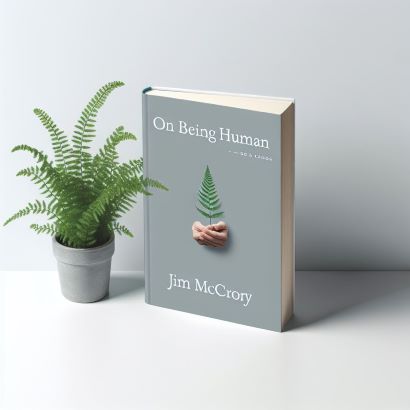“And each man will sit under his own vine and under his own fig tree,
with no one to frighten him. — Micah 4: 4

Image generated with the assistance of Microsoft Copilot
"We Cannot Go on Like This."
When Chekhov’s Vanya utters those heart-breaking words, “We cannot go on like this” He speaks for more than one disillusioned soul on a rural Russian estate. His cry reflects a deeper, ageless anxiety that we recognize today as well; one that has only grown louder in our modern world.
Chekhov wrote Uncle Vanya at a time when Europe had embraced the ideals of reason and progress but still felt the shadows of spiritual emptiness and human cruelty. Vanya’s lament is not just personal, but prophetic: a symbol of humanity at a crossroads, hands on the door to an uncertain future.
The Enlightenment, with all its light and logic, declared that God was unnecessary, even dead, as Nietzsche famously put it. Humanity crowned itself sovereign over its own destiny. Confident that reason alone would make the world safer, freer, and happier, society hoped for a new dawn. But in discarding the divine, we also invited unforeseen troubles into our world: wars of unprecedented scale, ideologies that crushed millions, and a world spinning faster into chaos and fear.
And so, Vanya’s exhausted plea, “We cannot go on like this,” becomes a metaphor for the human soul left hollow when it places too much faith in human intellect and too little in humility, compassion, or higher purpose. What Chekhov’s story reminds us of is that reason without Godly wisdom is light without warmth; it can dazzle as much as it can destroy.
Yet in Uncle Vanya, after his desperate cry, Sonya offers a gentle, steadfast reply: they will go on. They will work. They will wait for a better world they may never live to see. Even when all seems lost, one treasure remains — hope.
And so too for us. Even as our modern world groans under the weight of its troubles, environmental, moral, and technological, we need not collapse into cynicism or despair. True hope invites us to embrace our humanity anew, to rekindle compassion in a time of chaos, and to look to God’s Kingdom as the only real and enduring solution. It is this Kingdom — as promised in Scripture — that will wipe away every tear and put an end to every cry of anguish. Only then will the exhausted soul of humanity find its lasting peace.
“During the time of those kings, the God of heaven will set up another kingdom. It will never be destroyed. And it will not be given to another group of people. This kingdom will crush all the other kingdoms. It will bring them to an end. But that kingdom itself will continue forever.”
—Daniel 2:44
Scripture quotations taken from the International Children’s Bible®. Copyright © [1986] by Thomas Nelson. Used by permission. All rights reserved.


